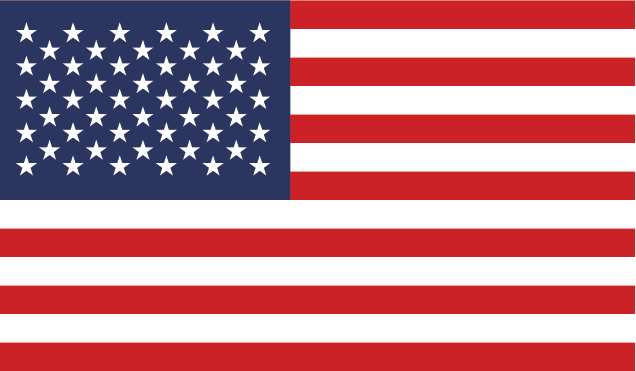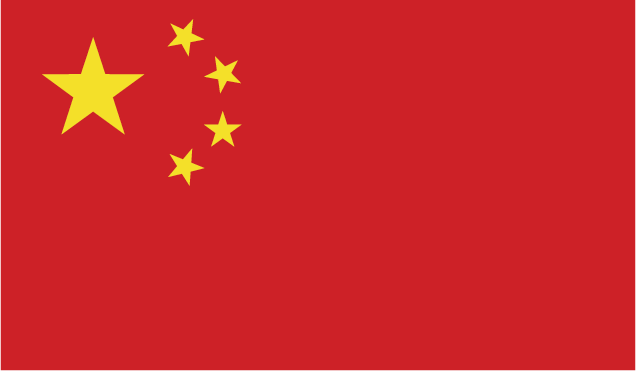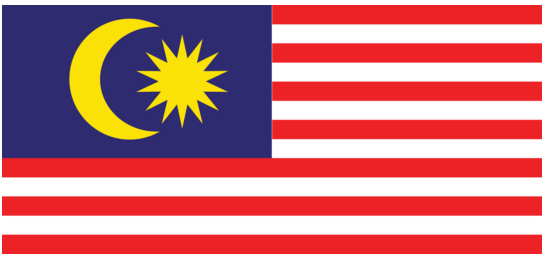
How Indonesian Exporters Can Benefit from Trump Tariffs
Indonesian exporters Trump tariffs
Introduction to Trump Tariffs and Their Impact on Global Trade
The tariffs implemented under former U.S. President Donald Trump redefined the contours of global trade, creating a ripple effect of challenges and opportunities for exporters worldwide. Initially targeted at trading powerhouses such as Canada, China, and Mexico, these measures reshaped international commerce, triggered economic shifts, and disrupted supply chains. For Indonesian exporters, understanding the origins and implications of these reforms is vital to forging a path in an increasingly complex trade ecosystem.
Historical Context of Trump Tariffs
The Trump administration's tariffs were rooted in a sweeping trade agenda designed to tackle perceived inequities and safeguard U.S. economic interests. Introduced in 2025, the policy imposed duties on imports from key trade allies like Canada, Mexico, and China, with rates tailored to each partner and product category. For example, goods from Canada and Mexico faced a steep 25% tariff, while imports from China were hit with a 10% tariff on select items1. While these tariffs ostensibly aimed to address issues such as immigration and illicit drug flows, their economic repercussions extended far beyond their initial intent.
Impact on Global Trade
These tariffs sent shockwaves through global supply chains, particularly in North America, where economies are tightly interwoven. The intricate back-and-forth movement of components across U.S., Canadian, and Mexican borders was significantly hindered, driving up production costs and undercutting the competitiveness of finished goods in international markets2. The resulting retaliatory tariffs imposed by affected nations added another layer of complexity, straining trade relationships and destabilizing economic equilibrium.
Opportunities for Indonesian Exporters
While these policies have undoubtedly disrupted traditional trade flows, they have also unlocked opportunities for emerging players like Indonesian exporters. As businesses reevaluate and diversify supply chains to reduce dependency on nations hit hardest by tariffs, Indonesian companies can position themselves as viable alternatives. Additionally, Indonesia’s pivotal location in Southeast Asia and its participation in regional trade agreements provide a launchpad for tapping into new markets and minimizing exposure to volatile global dynamics.
In summary, grasping the underlying drivers and broad consequences of Trump-era tariffs is imperative for Indonesian exporters aiming to thrive amid uncertainty. By carefully analyzing these policies and leveraging strategic opportunities, businesses can bolster their resilience, sharpen their competitive edge, and seize a larger share of the global trade pie.
Indonesia's Trade Position and Potential Bargaining Chips
The shifting dynamics of global trade, shaped by policies like the Trump tariffs, present both challenges and unique opportunities for Indonesia. Positioned strategically amid burgeoning Southeast Asian markets and boasting a robust export base, Indonesia holds tangible leverage to navigate these waters. This section delves into Indonesia's current trade landscape and highlights key sectors that could serve as significant bargaining tools in negotiating more advantageous trade terms with the United States.
Current Trade Position: Indonesia At a Glance
Indonesia enjoys a healthy trade surplus with the United States—a noteworthy economic advantage. A trade surplus means Indonesia exports more goods to the U.S. than it imports, a position that empowers it to initiate discussions on equal footing. Core contributors to this surplus include textiles, footwear, and electronics, products that have cemented Indonesia’s reputation as a reliable supplier in global markets.
This trade surplus reflects not just volume but also the competitiveness of Indonesian exporters. However, as global trade policies grow increasingly complex, sustaining this surplus requires a strategic shift. Leveraging this advantageous position to strengthen diplomatic and commercial ties with the U.S. could bring long-term rewards while ensuring resilience in the face of future uncertainties.
The Building Blocks of Bargaining Power
Indonesia’s trade assets go far beyond just numbers on a balance sheet. Several intrinsic factors position the nation as a compelling contender for favorable trade negotiations. These include:
-
Diverse Export Portfolio
Unlike many economies heavily reliant on a singular export, Indonesia boasts a well-diversified trade portfolio. From palm oil and rubber to coal and manufactured goods, the variety ensures Indonesia isn’t overly dependent on any one commodity or market. This diversification provides much-needed stability and strengthens its ability to sit at negotiation tables without being overly vulnerable to external shocks. -
A Geopolitical Edge
As a gateway to Southeast Asia, Indonesia's location offers access to key regional markets under frameworks like the ASEAN Free Trade Agreement (AFTA) and the Comprehensive and Progressive Agreement for Trans-Pacific Partnership (CPTPP). This geographic advantage allows Indonesia to seamlessly engage in multilateral trade dialogues while presenting itself as a link between major economies and fast-growing Southeast Asian markets. Its role as a regional hub is a compelling argument for the U.S. to consider more favorable trade terms. -
A Rapidly Expanding Consumer Market
Indonesia is home to over 270 million people, with a young and increasingly affluent population driving consistent growth in domestic consumption. The nation's burgeoning middle class and their increasing spending power make Indonesia a lucrative market for global players. For U.S. companies eyeing Indonesia's consumer base, granting favorable trade terms could open doors to a vibrant and expanding market.
- Economic Modernization Through Infrastructure
Recent initiatives focusing on infrastructure—ranging from ports and logistics facilities to highways—underscore Indonesia’s commitment to fostering efficient trade operations. By prioritizing modernization, Indonesia reduces bottlenecks while positioning itself as an optimal partner for trade. An infrastructure landscape designed for seamless export flows signals reliability and intent, two attractive qualities for negotiating partners like the U.S.
Key Sectors: Where Indonesia Can Play Its Strengths
To translate these advantages into actionable trade benefits, Indonesia can lean on several cornerstone industries. Sectors like textiles, electronics, and agriculture hold particular promise as levers in trade discussions.
-
Textiles and Apparel
Indonesia has carved a global niche in textiles and apparel, with its exports finding a steady market in the U.S. Growing demand for sustainable and ethically produced goods further aligns with Indonesian producers who increasingly adopt eco-friendly practices. Negotiations could target easing import duties or increasing quotas in these areas, creating a win-win scenario for both sides. -
Electronics and Technology
With an expanding electronics manufacturing base, Indonesia is witnessing a surge in tech-related exports. The government’s push to establish itself as a tech and innovation hub bolsters its bargaining position. Focusing discussions on technology transfer agreements or reduced tariffs on electronics could unlock immense export potential. -
Agricultural Commodities
As one of the world’s largest suppliers of palm oil, rubber, and cocoa, Indonesia holds unique power in agricultural trade. These products are vital elements in U.S. supply chains for industries ranging from food production to automotive. Indonesia can leverage its dominance to secure concessions on tariffs or trade restrictions in exchange for uninterrupted supply.
Charting the Path to Better Trade Terms
Strategic navigation of international negotiations will be key for Indonesia to translate these strengths into concrete trade advantages. The following approaches could enhance the country's ability to secure long-term benefits:
-
Pursue Multilateral Trade Avenues
Engaging actively in multilateral trade agreements like the CPTPP adds structural credibility to Indonesia's trade discussions. Membership in such frameworks strengthens its global standing and provides an upper hand in bilateral negotiations with the U.S. -
Industry-Specific Negotiations
Prioritizing sector-specific dialogues allows Indonesia to address barriers on a granular level. Tackling existing tariffs on textiles or electronics, for instance, could yield high-impact returns without requiring broader trade renegotiations. -
Bolster Diplomatic Ties
Beyond economic rhetoric, strong diplomatic relations serve as a backbone for sustainable trade agreements. Regular engagement could pave the way for collaborative opportunities, ensuring mutual trust and understanding between Indonesia and the U.S.
- Enhance Export Competitiveness
Continued investment in innovation and sustainability solidifies Indonesia’s reputation as a forward-thinking economy. As global buyers increasingly prioritize ethical and green products, aligning its industries with these trends can make Indonesia an indispensable partner.
The Road Ahead
Indonesia's trade narrative is at a crossroads, with its surplus and diversified export base offering more than just numbers—they represent the nation's potential to emerge as a critical player on the global stage. By strategically leveraging its geopolitical position, growing domestic market, and robust industries, Indonesia can craft a distinctive trade strategy. The Trump-era tariffs, while disruptive, underscore the transformative potential of challenges for agile economies. For Indonesia, the time to assert itself in global trade negotiations is now.
Strategies for Indonesian Exporters to Benefit from Trump Tariffs
As Trump-era tariffs continue to reshape trade dynamics, they also create fertile ground for opportunities—if approached with foresight and strategy. Indonesian exporters, in particular, have a unique chance to carve out a profitable niche in the global marketplace. By reevaluating their supply chains, investing in domestic infrastructure, and venturing into alternative markets, Indonesian businesses can transform challenges into stepping stones for growth. Here are actionable strategies designed to help Indonesian exporters capitalize on these shifting tides:
Diversifying Supply Chains
-
Breaking Free from Reliance on Tariffed Nations
The heightened tariffs on countries like China—their exports facing up to 25% duties—offer a clear signal to Indonesian exporters: diversify. For example, instead of relying on Chinese-manufactured electronics components, Indonesian companies could tap into nearby hubs such as Vietnam, South Korea, or even domestic suppliers. Sourcing from countries unaffected by U.S. tariffs allows Indonesian businesses to sidestep inflated costs while maintaining their competitive pricing. -
Tapping into Regional Trade Alliances
Indonesia’s membership in regional pacts such as the ASEAN Free Trade Agreement (AFTA) and the Comprehensive and Progressive Agreement for Trans-Pacific Partnership (CPTPP) can act as a master key to open doors across Asia-Pacific markets. These agreements not only provide access to high-growth economies but also mitigate the ripple effects of U.S. tariff policies. By strengthening trade routes within the region, Indonesian exporters reduce their vulnerability while creating a stable supply chain network.
Investing in Domestic Production
-
Fortifying Manufacturing at Home
There’s no better time for Indonesia to invest in its domestic manufacturing sector. Enhancing production facilities—for example, in the burgeoning electronics and textile industries—can reduce dependency on imported goods and diminish exposure to tariff-related pressures. With a localized supply chain, exporters maintain greater control, reduce logistical uncertainties, and serve their buyers more efficiently. On top of it all, ramping up manufacturing catalyzes job creation and boosts economic vitality. -
Fostering Innovation Across Industries
Encouraging local innovation can transform Indonesia into a self-reliant hub for cutting-edge products. Partnerships between Indonesian universities, research institutions, and private enterprises can drive the development of proprietary technologies and processes. Imagine high-quality electronic circuits or durable textiles made entirely from locally sourced materials, products immune to foreign cost inflation or regulatory complexities. Investing in innovation empowers exporters to lead rather than follow.
Exploring New Markets
-
Targeting High-Growth Economies
While developed markets like the U.S. and EU are central to global trade, they’re not the only avenues worth exploring. Emerging markets in Africa and Latin America are hungry for goods that Indonesian exporters can supply—ranging from palm oil to consumer electronics. Establishing trade footholds in these regions not only diversifies income streams but also shields businesses from dependency on volatility in traditional markets. -
Strengthening ASEAN Partnerships
The ASEAN region holds immense untapped potential. With over 600 million consumers and growing middle-class populations, neighboring markets like Malaysia, Thailand, and Vietnam are a treasure trove of opportunity. Strengthening trade ties within Southeast Asia through initiatives like the Regional Comprehensive Economic Partnership (RCEP) can help Indonesian exporters solidify their presence close to home while spreading risk.
Leveraging Trade Agreements
-
Harnessing the Power of Preferential Trade Deals
Thanks to agreements like the Indonesia-Australia Comprehensive Economic Partnership Agreement (IA-CEPA) and the Indonesia-European Union Comprehensive Economic Partnership Agreement (IEU-CEPA), Indonesian exporters have preferential access to some of the world’s most lucrative consumer bases. For example, tariff reductions under IA-CEPA give Indonesian agricultural and manufactured goods a significant edge in Australian markets. Such agreements level the playing field for Indonesian products in competitive global arenas. -
Inking Strategic Bilateral Trade Pacts
Beyond multilateral agreements, Indonesia can pursue targeted bilateral trade deals with nations less affected by U.S. tariffs, such as European or Middle Eastern countries. By negotiating favorable terms, Indonesian exporters can secure privileged market access, further enhancing their competitive positioning in critical industries like textiles, electronics, and food processing.
Enhancing Export Competitiveness
-
Emphasizing Sustainability and Product Excellence
Global consumers are increasingly favoring eco-friendly and responsibly produced goods over their mass-market counterparts. Indonesian exporters can leapfrog competitors by embracing sustainable practices—from sourcing to packaging—and delivering products that captivate environmentally conscious buyers. Moreover, prioritizing product quality isn’t just a trend; it’s becoming a baseline expectation in discerning markets. The "Made in Indonesia" label can stand out worldwide by balancing affordability with integrity and excellence. -
Investing in Logistics and Infrastructure
Efficient logistics is the backbone of competitive exports. Indonesia, blessed with a vast archipelago, must continue investing in modern ports, seamless transportation networks, and state-of-the-art warehousing to support exporters. Improved infrastructure translates to faster deliveries, reduced operational costs, and higher customer satisfaction. In an age when supply-chain efficiency can make or break a deal, this investment is non-negotiable.
By executing these strategies, Indonesian exporters can move deftly amidst the complexities of U.S. tariffs, turning market disruptions into springboards for global success. The world of trade is ever-changing, but with agility, innovation, and a proactive mindset, Indonesia can cement itself as a formidable player in the global economy.
Case Studies: Success Stories of Indonesian Exporters Navigating Tariffs
Navigating the turbulent waters of Trump-era tariffs has been no easy feat for Indonesian exporters. These trade barriers presented a stark duality: a challenge for some yet an opportunity for others. While heightened costs and market uncertainties rattled the trade environment, certain companies seized the moment, breaking away from the confines of traditional strategies. By recalibrating their approaches and leveraging Indonesia's regional trade strengths, these businesses not only weathered the storm but charted a course for sustained growth. Let's delve into the success stories of these trailblazers and uncover the strategies that propelled them forward.
PT Indofood CBP Sukses Makmur Tbk
A shining example of resilience in the face of global trade upheavals is PT Indofood CBP Sukses Makmur Tbk (https://www.indofoodcbp.com/), a household name in the processed food industry. When confronted with U.S. tariffs, Indofood reframed the situation as an impetus to diversify its market reach. Capitalizing on Indonesia's membership in the ASEAN Free Trade Area (AFTA) and the Comprehensive and Progressive Agreement for Trans-Pacific Partnership (CPTPP), the company tapped into emerging economies across the Asia-Pacific region.
This calculated pivot didn’t just mitigate risks but broadened Indofood’s export portfolio significantly. As the U.S. market became more cumbersome, the company intensified efforts to penetrate new regions where tariff barriers were negligible. By marrying agility with a laser focus on trade agreements, Indofood not only preserved its competitive edge but also captured untapped market potential, fortifying its global presence amid uncertainty.
PT Gudang Garam Tbk
The story of PT Gudang Garam Tbk (https://www.gudanggaramtbk.com/), a titan in Indonesia’s tobacco industry, demonstrates the power of innovation and operational refinement in challenging times. As tariffs pushed operational costs higher, Gudang Garam concentrated on bolstering domestic manufacturing capabilities. This inward-focused strategy proved to be a masterstroke, helping the company mitigate reliance on imported raw materials that were subject to higher tariffs.
Further, Gudang Garam redirected resources toward upgrading production efficiency and innovation, ensuring their products could compete at a global level. The resultant optimization not only safeguarded profit margins but also opened doors to previously difficult-to-access markets. By taking control of their value chain, Gudang Garam transformed an external crisis into an opportunity for operational excellence.
PT Sinar Mas Agro Resources and Technology Tbk
PT Sinar Mas Agro Resources and Technology Tbk (SMART) (https://www.smart-tbk.com/), a juggernaut in Indonesia’s palm oil industry, offers another compelling narrative of adaptation. Recognizing the shifting dynamics brought about by Trump tariffs, SMART pivoted to markets where the playing field remained level. The company leveraged Indonesia's status as a global leader in palm oil production to strike favorable trade deals with nations less affected by U.S. trade policies.
By steering their exports toward regions in Africa and South Asia, SMART not only ensured stable demand but also insulated itself from tariff volatility. This proactive approach to market realignment underscores the importance of flexibility and foresight in navigating shifting landscapes. SMART’s ability to use Indonesia's natural resource dominance as a negotiation tool speaks volumes about its strategic acumen.
Key Strategies and Lessons Learned
These inspirational case studies reveal the adaptive playbook Indonesian exporters can use to turn obstacles into stepping stones. Here are the standout strategies that drove these companies' success:
-
Diversify Supply Chains for Resilience
Indofood’s agile move to diversify its supply sources underscores a poignant lesson: dependency is vulnerability. By forging ties with trade partners unaffected by U.S. tariffs, Indonesian companies can sustain competitive pricing and avoid costly disruptions. -
Invest in Domestic Manufacturing to Gain Control
Gudang Garam demonstrated that doubling down on domestic production not only secures supply chains but also enhances quality and cost control. By taking ownership of their operations, businesses can buffer themselves against externalities like shifting trade regulations. -
Explore Untapped Markets for Expansion
The world is vast, and so are its opportunities. Indofood and SMART’s exploration of emerging economies, from Africa to Latin America, showcase that sometimes the best approach is to look beyond traditional markets. Opportunities lie in regions that demand agility and a forward-thinking mindset.
-
Leverage Trade Agreements to Stay Competitive
Indonesia’s participation in pivotal trade agreements like AFTA and CPTPP highlights the need for exporters to align with and leverage such frameworks. Companies, like Indofood, that deftly navigate these agreements enjoy expanded access to lucrative markets. -
Negotiate from a Position of Strength
SMART’s ability to capitalize on Indonesia’s dominance in palm oil underlines the importance of identifying leverage points. Whether it’s resource strength or a unique competitive advantage, leveraging such assets can drive favorable negotiations.
Building a Path for Prosperity
The resilience exhibited by these companies serves as a valuable blueprint for exporters across Indonesia. Adapting to tariffs—especially one as disruptive as the Trump-era impositions—is no small feat. Yet, by recalibrating operations, diversifying risk exposure, and exploring uncharted markets, these businesses turned adversity into an opportunity-laden growth strategy.
For exporters eyeing future-proof strategies, these success stories aren't just isolated wins—they’re guideposts. In a shifting global trade environment, the lesson is clear: resourcefulness, agility, and a readiness to pivot are the keys to thriving, not just surviving, in the face of external challenges. Indonesian businesses that embrace these principles will find themselves poised to lead, no matter how stormy the global trade waters may become.
Challenges and Future Prospects for Indonesian Exporters
The shifting tides of global trade bring with them both hurdles to overcome and opportunities to seize. For Indonesian exporters, especially in light of the volatile trade landscape shaped by Trump-era tariffs, the need to adapt has never been more pressing. To thrive amidst these uncertainties, businesses must confront existing challenges head-on, while strategically positioning themselves for future growth.
Challenges in the Global Trade Environment
-
Trade Policy Uncertainty
The unpredictable nature of global trade policies remains a significant obstacle. High-profile tariffs implemented by major economies, including the United States, can disrupt supply chains and drive up costs in an instant. For instance, recent tariffs targeting Canada, Mexico, and China have sent shockwaves through global commerce, leaving countries like Indonesia grappling with ripple effects across industries and markets. Such instability forces entrepreneurs to tread cautiously, often stalling growth opportunities. -
Stiff Competition from Established Economies
Fierce competition from economic giants like China creates an uphill battle for Indonesian exporters. With their state-of-the-art production capabilities and robust logistics networks, established players dominate sectors such as electronics, textiles, and consumer goods. Competing on price and scale against these economic titans—not to mention vying for the same global attention—can hinder Indonesia's progress toward becoming a global export powerhouse. -
Infrastructure and Logistical Challenges
Indonesia’s sprawling archipelago of over 17,000 islands presents inherent logistical challenges. Transportation inefficiencies, costly shipping routes, and underdeveloped infrastructure contribute to higher operational expenses, which can make products less competitive on a global scale. Although infrastructure projects, such as new ports and highways, are underway, much work remains before Indonesia achieves supply chain efficiency on par with leading economies.
- Navigating Complex Regulatory Compliance
Exporting goods across borders brings with it an intricate web of regulations. From environmental standards to labor laws and product safety requirements, staying compliant with stringent rules in markets like the U.S. and EU demands considerable expertise and resources. For small- and medium-sized enterprises, these regulatory barriers can be especially daunting, often acting as a deterrent to pursuing international opportunities.
Future Prospects for Growth and Adaptation
Despite these roadblocks, Indonesian exporters have a golden opportunity to craft a resilient and prosperous future—one that is built on innovation, diversification, and strategic partnerships.
-
Targeting Emerging Markets
Market diversification is vital for shielding businesses from the unpredictability of traditional trading partners. Beyond the U.S. and EU, regions such as Africa, Latin America, and Southeast Asia present untapped potential due to their expanding middle classes and demand for imported goods. By tailoring products to these markets, Indonesian businesses can cultivate new revenue streams while reducing dependence on a single region. -
Driving Innovation and Branding
Investing in innovation—whether through adopting new technologies, automating production, or creating niche, high-quality products—can elevate Indonesian exports to new heights. Building a strong, globally recognized "Made in Indonesia" identity anchored in excellence and sustainability will position the country as a competitive force. Local industries that lean on unique resources and craftsmanship also stand to benefit from carving out premium niches in global markets. -
Harnessing Regional Trade Agreements
Indonesia’s active participation in regional frameworks like the ASEAN Free Trade Area (AFTA) and joining the Comprehensive and Progressive Agreement for Trans-Pacific Partnership (CPTPP) unlocks access to lucrative markets. These agreements offer tariff advantages and streamlined trade channels, giving Indonesian exporters an edge over their competitors. With Asia-Pacific being one of the world’s fastest-growing regions, doubling down on intra-regional trade could become a game-changer.
- Sustainability as a Competitive Advantage
Globally, consumer preferences are gravitating toward eco-friendly, ethically sourced products. Indonesian exporters that embrace sustainability—whether by adopting greener practices in production or emphasizing fair labor conditions—can carve out a unique selling point in this burgeoning market segment. By highlighting these values, businesses can not only mirror consumer sentiments but also command higher prices for responsibly made goods.
Charting a Strategic Path Forward
For Indonesian exporters to truly capitalize on these prospects, a cohesive, forward-thinking strategy is essential—one that prioritizes adaptability, resilience, and innovation.
-
Broaden Product Offerings and Industries
Diversify exports by tapping into industries with high growth potential, such as green technology, halal-certified goods, or artisanal crafts. Avoid market oversaturation by reducing reliance on commodities where competition is insurmountable. -
Expand Trade Diplomacy and Negotiations
Strengthen Indonesia’s global standing by reinforcing diplomatic and economic ties with key nations. Skilled trade negotiators can secure improved terms in major deals, enhancing access to sought-after markets. -
Infrastructure and Supply Chain Optimization
Accelerate upgrades to ports, airports, and inter-island logistics systems. Smooth, cost-effective transportation will make Indonesian products more attractive internationally while boosting profit margins.
- Leverage Data and Market Insights
Invest in tools that provide deep insight into consumer trends, demand forecasts, and trade compliance requirements. Knowledge is power, particularly when navigating a dynamic global trade landscape.
Moving Beyond Challenges
Though the global trade environment is fraught with complexities, Indonesian exporters have every reason to view the future with optimism. Through market diversification, innovation, and alignment with shifting consumer preferences, businesses can harness today’s challenges as catalysts for reinvention. By working strategically to enhance competitiveness, adapt to changing dynamics, and embrace sustainability, Indonesia is poised to elevate its reputation as a formidable player in the international trade arena.
Conclusion: Seizing Opportunities in a Tariff-Driven Trade Era
The Trump-era tariffs have undeniably reshaped global trade, carving out both hurdles and openings for Indonesian exporters. By delving deeply into the origins and ripple effects of these policies, Indonesian businesses can chart a course through this intricate, ever-changing landscape. Positioned strategically in Southeast Asia with a broad export portfolio, Indonesia’s involvement in pivotal trade pacts like the ASEAN Free Trade Agreement (AFTA) and the Comprehensive and Progressive Agreement for Trans-Pacific Partnership (CPTPP) equips its exporters with the tools to capitalize on emerging opportunities.
Winning Strategies for Indonesian Exporters
To thrive amid these shifts, Indonesian businesses can adopt the following tactical approaches:
-
Expanding Supply Chain Networks
By turning to regions unaffected by U.S. tariffs—such as Vietnam or South Korea—exporters can keep their pricing competitive and safeguard their operations from potential disruptions. -
Boosting Local Production Capabilities
Prioritizing domestic manufacturing not only reduces dependency on imports but also acts as a buffer against tariff-induced challenges. What’s more, this strategy stimulates job creation and strengthens economic momentum, a win-win for businesses and communities alike. -
Tapping into New Market Frontiers
Exploring vibrant, untapped economies in Africa and Latin America diversifies revenue streams and provides a safety net against the unpredictability of established markets.
- Harnessing Trade Agreements
Unlock new avenues by utilizing preferential trade agreements such as the Indonesia-Australia Comprehensive Economic Partnership Agreement (IA-CEPA) and the Indonesia-European Union Comprehensive Economic Partnership Agreement (IEU-CEPA). These deals offer a strategic advantage, allowing businesses to broaden their global footprint and seize competitive gains.
Looking Ahead: Innovation and Sustainability Take Center Stage
While the unpredictability of global trade policies and stiff competition from powerhouses like China loom large, Indonesian exporters remain well-positioned for growth. By championing innovation, embracing sustainable business practices, and forging forward-thinking partnerships, businesses can heighten their global appeal. Building a reputation for "Made in Indonesia" as a mark of premium-quality and eco-friendly products will resonate strongly with today’s environmentally conscious consumers.
The Bottom Line
In essence, Indonesian exporters have a golden opportunity to not just endure but excel in this tariff-driven trade environment. The path to success lies in proactive measures: diversifying supply chains, scaling up domestic manufacturing, unlocking access to uncharted markets, and leveraging trade agreements. By aligning these strategies with Indonesia’s inherent strengths, businesses can rise above current challenges, assert their presence on the global stage, and chart a course toward sustainable, long-term success.
Enhance Your Market Reach with PONGO TECH
Discover Innovative Solutions with PONGO
PONGO TECH brings a fresh perspective to the challenges faced by businesses navigating complex trade environments like those influenced by Trump tariffs. Our suite of services includes leveraging advanced digital marketing strategies and influencer partnerships designed specifically to help brands maximize their potential in unpredictable markets. By integrating PONGO's expertise in live commerce and targeted content creation, businesses can not only weather tariff impacts but also capitalize on new opportunities in global trade.
Why Choose PONGO?
PONGO TECH stands at the forefront of social media and e-commerce marketing within Southeast Asia, renowned for transforming brands' international presence. Our recognition stems from our unique approach combining local expertise, cutting-edge technology, and a vast network of influencers. Partnering with brands across industries, PONGO has demonstrated significant success stories, helping companies not only gain a foothold in challenging markets but thrive within them.
Solve Your Challenges with PONGO
With the intricate landscape of tariffs and trade regulations, businesses often struggle to maintain competitiveness. PONGO provides the tools and insights needed to navigate these complexities efficiently. Our data-driven strategies ensure you stay ahead of market shifts, while our deep understanding of consumer behavior allows for precision-targeted campaigns that resonate with your audience's core values and demands.
Join Us Today!
Ready to elevate your business strategy? Contact PONGO TECH to explore how we can help transform your trade challenges into opportunities. Visit our contact page to learn more about our services and begin your journey towards growth today.
 English
English 



